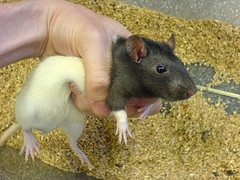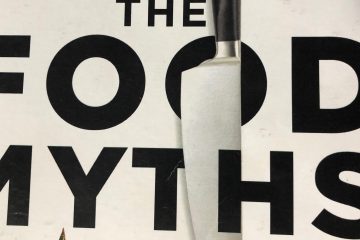Tips To Filter Conflicting Soybean Nutrition Messages
Have you noticed there are many conflicting messages regarding soybean nutrition? The abundance of online marketing and the mobile information network have made it easy for consumers to become confused about the health benefits of soy products and who to listen to.
Sadly, I have spoken with many parents who have abandoned soy products altogether because the soy critics have become so loud. The information out there is just too much to wade through. I can’t say that I blame them.
In fact, I would probably be in that same boat had I not learned of a few expert voices and some helpful tips to filter the information.
Solid Scientific Research Does Not Always Get The Most Clicks
Often times, the more “sensational” messages about soy become the loudest and most popular. This is true of anything in marketing and news headlines. A catchy headline will undoubtedly get more clicks. As the article or post goes viral, it quickly moves up in Google’s page rank. So the next time someone comes online to do a search, guess what pops up?
So, how do we cut through the fog?
I believe the answer is to use discernment in selecting credible authors and sources. Think of it as a filtering system. A good system will eliminate questionable sources and those more sensational headlines. Just because a soy article is one of Google’s top 10 pages does not guarantee that it’s grounded in sound scientific research.
A good system will also give you a few credible experts in the area of soy research. These sources will give you a standard by which you can filter much of the misinformation that’s out there.
Two Reputable Voices On Soybean Nutrition
Here are two sources that I personally trust when it comes to information on soy.
Dr. Mark Messina is an adjunct professor at Loma Linda University and the Executive Director of the Soy Nutrition Institute. He has been studying the health effects of soy for more than 20 years. Dr. Messina has published more than 60 scientific papers and given more than 500 presentations on soy foods to health professionals. I would say that makes him a pretty good expert when it comes to the truthful health impact of soy.
Dr. Stephen Chaney received his B.S. Degree in Chemistry from Duke University and his Ph.D. Degree in Biochemistry from UCLA. He is a distinguished professor in the Department of Biochemistry, Biophysics, and the Department of Nutrition at the University of North Carolina in Chapel Hill. Dr. Chaney teaches first year medical and dental students.
Dr. Chaney has published 97 papers and 12 reviews in peer-reviewed scientific journals as well as two chapters on nutrition for one of the leading biochemistry textbooks for medical students. He also ran an active cancer research program for 37 years. Dr. Chaney is definitely an expert when it comes to deciphering scientific fact from fiction and interpreting what the solid research says concerning soy protein.
These doctors are only two of many reputable voices out there on soy health, but bouncing messages off of their research is a great start!
The Problem With Cell Culture & Animal Studies

Photo Credit: haven’t the slightest via Compfight cc
Unfortunately, some of the bad press that soy receives is based on cell culture and animal studies. You may ask, “Isn’t this good research to pay attention to?” Well, not exactly.
Here is what Dr. Stephen Chaney has to say concerning this type of research:
“Any good scientist will tell you that these experiments have only a 10% chance of proving true in humans. We don’t discount those experiments, but rather use them as a basis for designing human clinical trials that will definitively test the hypothesis that they have raised.” 1
Did you catch that? The best nutrition research always comes from human clinical trials. So don’t be led astray by soy critics making truth claims based on unsubstantiated or unpublished research.
Don’t believe everything you read.
Always consider the source and check all references.
I hope these tips have been helpful as you sift through the various messages about soy and its impact on our health.
What conflicting messages about soy have you heard? Are there articles that you’re not sure about? Feel free to share your thoughts and questions below!
Related Links On Soy Nutrition
Frequently Asked Questions About Whole Soy
REFERENCES
1. Chaney, Dr. Stephen G. Letter to Dr. Falentin, a personal response to and critique of Nexus magazine’s article, “Soy Products: Tragedy and Hype”, personal files.
2. Feature Image Photo Credit: JeffreyRoss via Compfight cc



11 Comments
Martin Holsinger · July 9, 2013 at 2:17 pm
Great message.
Thanks for doing the research and then sharing it with us who “wade through” all the beguiling info online.
This is very helpful.
Martin
Bonnie | ProvenNutritionForKids · July 9, 2013 at 4:40 pm
You’re welcome, Martin. Glad you found it helpful!
Fred Lalonde · July 9, 2013 at 2:43 pm
Thanks for this very interesting article. I recently came across some material from author J.J. Virgin who states that 90% of soy today has been genetically modified. I was wondering if you agree with this?
Bonnie | ProvenNutritionForKids · July 9, 2013 at 4:37 pm
Great question, Fred. Yes, in America, this statistic would be very close to the truth (not sure of the exact percentage). You’ll find it mentioned in many places and even the farmers themselves will attest to this.
Genetically modified seeds are very popular in America due to their obvious benefits on yield, pest control, etc. AND due to government support for the use of these seeds (some countries don’t even allow them). Though no human clinical trials or conclusive research has been published as to the health effects of GM foods, many folks in the nutrition field will advise you to steer clear of them when possible. The organic, non-gmo movement has been growing here in America, and I believe that anytime we can reduce chemical pesticides in our foods is a good thing.
Jory Fisher · July 9, 2013 at 7:44 pm
Bonnie, the medical nutrition experts I know RAVE about the benefits of soy protein. I have no concerns about that whatsoever.
I’d love it if you wrote an article related to soy sensitivities. Do children have issues with that? I was able to consume soy products for several years but then developed a very unhappy intolerance of this wonderful protein source.
Is that a problem for kids too?
Thanks!
Bonnie | ProvenNutritionForKids · July 10, 2013 at 1:34 pm
Great questions, Jory. I will add this topic to my list of things to address in future posts. I have heard of people having sensitivities to soy, but there can be many reasons for that, and sensitivities can vary with even different types of soy. I will be sure to come back to your question and get some good resources put together on that!
Jory Fisher · July 10, 2013 at 1:59 pm
Thanks so much, Bonnie!
Anita Levesque · July 9, 2013 at 7:59 pm
We stay away from soy as my husband is allergic to it. Thanks for the share. Anita
Linda O'Rourke · July 10, 2013 at 3:13 am
I think with everything there are always arguments for and against and unfortunately the one’s against tend to spread more than the ones for. I think you have to do your own research and make your own decisions. Thank you for the information.
Bonnie | ProvenNutritionForKids · July 10, 2013 at 1:40 pm
True, Linda. I just hope this post helps people become a little more wise in their research and come to conclusions based on good logic and thought.
Johnd581 · August 3, 2014 at 9:26 pm
I like the helpful information you provide in your articles. Ill bookmark your weblog and check again here regularly. I’m quite certain I will learn plenty of new stuff right here! Good luck for the next! dgcgdecedffk